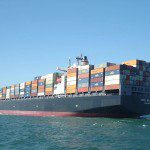![https://commons.wikimedia.org/wiki/File%3ASP-GC-puertorico-pano-1.JPG; User: Bgabel at wikivoyage shared [GFDL (http://www.gnu.org/copyleft/fdl.html) or CC BY-SA 3.0 (https://creativecommons.org/licenses/by-sa/3.0)], via Wikimedia Commons](https://wp-media.patheos.com/blogs/sites/533/2017/09/800px-SP-GC-puertorico-pano-1.jpg)
That’s my post title and I’m sticking to it — even though I don’t know that Puerto Rico can be fixed. So far as I can tell, it’s a mess. It is not a simple case of “well running state (OK, commonwealth) devastated by a massively destructive hurricane.” Recall that they had not long ago declared bankruptcy, that they are so poor that their household income is less than half that of the 50th state, Mississippi (see Wikipedia), and that (per the AP),
The island’s infrastructure was in sorry shape long before Maria struck. A $73 billion debt crisis has left agencies like the state power company broke. As a result the power company abandoned most basic maintenance in recent years, leaving the island subject to regular blackouts.
Now Puerto Ricans are struggling with basics — food, water, and a new “basic” in the year 2017, the ability to communicate. Slate’s article on the subject is subtitled “As an American territory, the island has access to immediate relief measures. It’s long-term support that’s the growing issue.” Another Slate writer calls for Congress to axe the Jones Act which requires that only American-flagged ships import goods into the island, driving up costs. Tyler Cowen, writing at Bloomberg View, calls for the federal government to bring about “transformational change,” though he doesn’t really propose a path forward so much as suggest that it’s all a matter of will.
But why has Puerto Rico been so debt-ridden? Is it really just the result of the Jones Act? There are claims tossed around that the island has been corruptly governed. There certainly has been a brain drain, no different than the brightest West Virginians leaving coal country — what would the island’s development have been like if they had been as restricted from moving to mainland U.S. as other Caribbean islanders?
And what makes Puerto Rico so much poorer than mainland U.S.? It’s my understanding that the federal government has sent plenty of cash its way, and has had tax incentives in place for American businesses to locate there. Reportedly, however, the country has been handicapped by being held to the American minimum wage, despite its need to compete with neighbors with lower payscales — though that explanation begs the question, since only due to its poverty is the $7.25 minimum wage a problem.
There’s also a matter of education — Wikipedia, as an easy reference, reports that the public school system is rather deficient compared to the 50 states: “ninety-five percent of public school students in Puerto Rico graduate at a sub-basic level” and “six percent of students in Puerto Rico scored at or above basic in eighth grade in comparison to the United States where 68% of students in the United States scored at or above basic in the same grade.” (The latter statistic is old — from 2005.)
And up until 2006, Puerto Rico benefited from tax breaks for American companies; one could say that it’s economic failures subsequent to that point were due to the removal of those breaks, or one could say that Puerto Rico should have been reasonably able to stand on its own. Wikipedia (yes, again) also reports that not only is the power company state-owned, but it powers its plants entirely on the basis of oil imports. In addition, despite fertile land, Puerto Rico imports 85% of its food.
What’s more, Puerto Rico has no natural resources that I can tell, and has to compete with lower-wage Caribbean countries for tourism dollars. To be sure, it has the advantage of not requiring a passport, but that’s only a small part of tourism decisions.
What is striking, at least in reading the Wikipedia article, is that, compared to the mainland U.S., Puerto Rico is devastatingly poor, but, compared to Latin America, they’re doing quite well. And as much as I’m reading a lot of blame being assigned to the fact that it isn’t a state, it seems to me that one of the differences is the fact that it is simply culturally different. It’s perfectly fine for a company to locate a manufacturing plant there (and this was particularly true, apparently, of pharmas), but offices seem to be another story altogether. Why would you want to move your executives, your middle-managers to a location where the locals only speak English as a foreign language? There also don’t seem to be any strong local companies; at least, Wikipedia’s list of notable companies is fairly short and limited largely to banking, communications, retailers, and the like; it seems that the territory has been harmed by the departure of its ambitious young people to the U.S. as well as the dependence, of the rest, on American companies coming there to set up plants. It seems that it would be better off with closer ties to Latin America, with a close, Schengen-like affiliation with the U.S., that would enable it to be a powerhouse there — or perhaps, would have been, anyway.
Tyler Cowen says that the problem is that Puerto Rico has languished as a territory (or, more precisely, commonwealth), and that statehood would have provided economic growth:
When regions moved from territories to full-blown states, it provided a big boost to their per capita incomes. Puerto Rico never did the same, in part because its citizens voted not to, and in part because the mainland was reluctant to absorb a Hispanic territory.
But he doesn’t back up this generalization, and, in fact, all discussions of statehood that I’ve seen are not about economic growth at all but Puerto Rico’s eligibility for new money from the federal government, the fact that its people would be recipients of large sums of Earned Income Tax Credits, and so on. Being a Spanish-speaking part of the United States seems to be a worst-of-both-worlds situation that isn’t remedied by being a state rather than a not-state; becoming a state wouldn’t transform the education level of its people, and wouldn’t make the place more desirable for doing business as a English-speaking company.
So, yes, it’s a given that right now, the federal government has to pour as many billions as it takes to rebuilt the power system. There’s no getting around that. The cellular network is also devastated, though it’s not clear to me whether this is also state owned or owned by individual private companies. The roads? The water system? — how much of that is hurricane-damaged, vs. just needing electricity restored? And how much of the damage to homes and businesses was insured, and was the country “middle class” enough for it to be the norm for homeowners to buy insurance? And until the Puerto Rican economy is functional again, there will be similar amounts of money spent on providing for basic needs.
But what next?
https://commons.wikimedia.org/wiki/File%3ASP-GC-puertorico-pano-1.JPG; User: Bgabel at wikivoyage shared [GFDL (http://www.gnu.org/copyleft/fdl.html) or CC BY-SA 3.0 (https://creativecommons.org/licenses/by-sa/3.0)], via Wikimedia Commons











